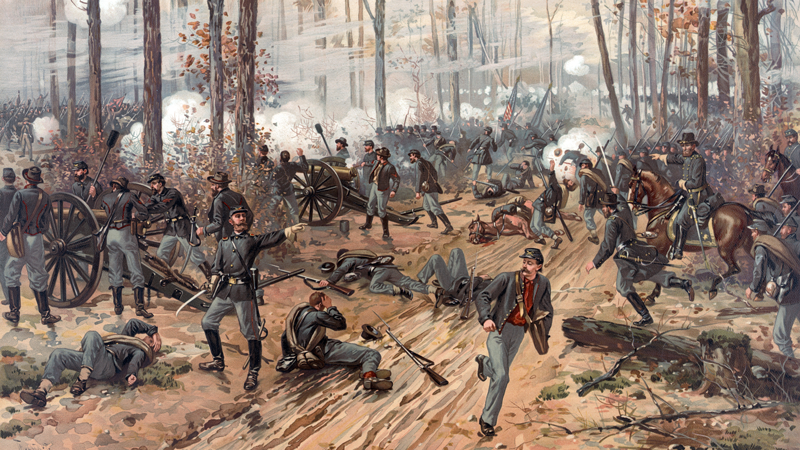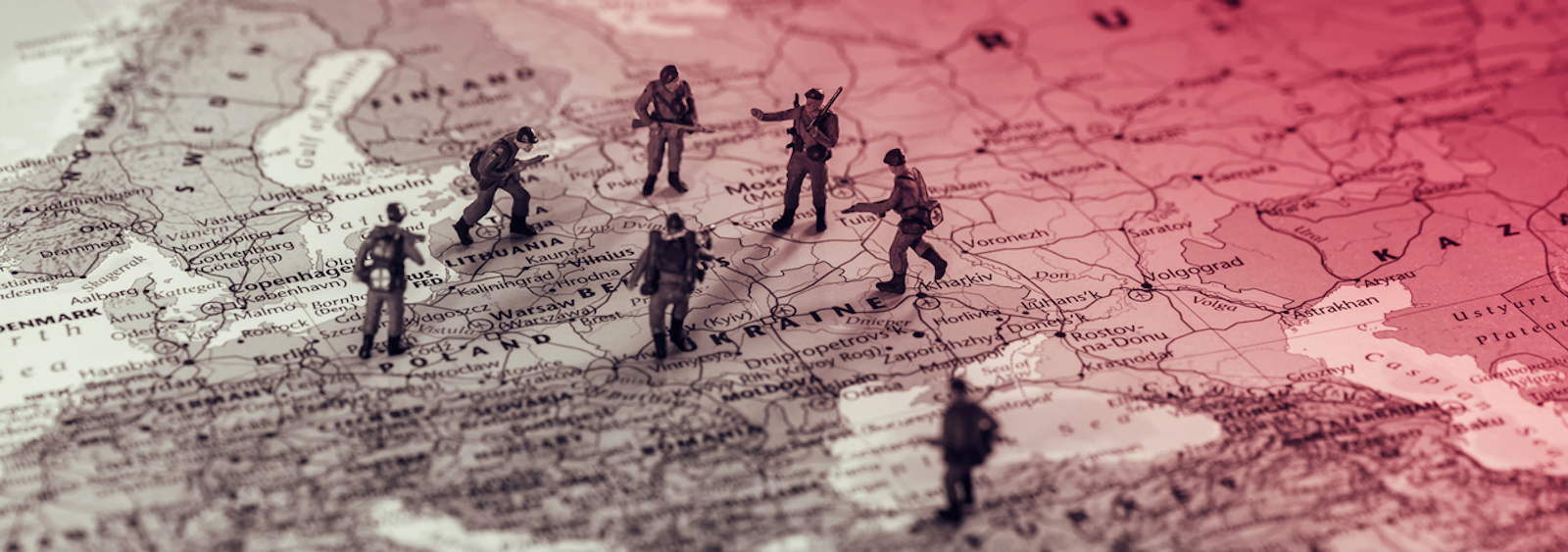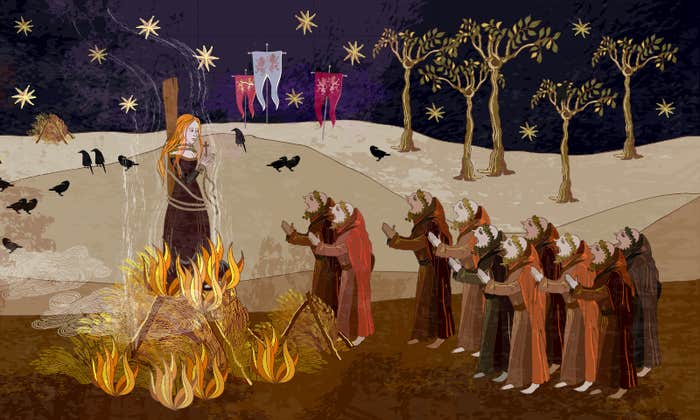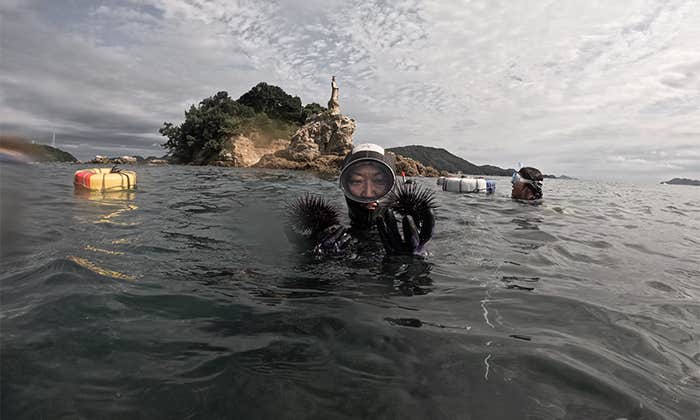In 1991 two hikers in the Italian Alps stumbled on a mummified body buried in the ice. The Iceman, it turned out, died more than 5,000 years ago. At first, archeologists assumed he’d fallen in a snowstorm and frozen to death. Then they discovered various cuts and bruises on his body and an arrowhead embedded in his shoulder. They also found traces of blood on the stone knife he was carrying. Most likely, he died fighting.
Canadian historian Margaret MacMillan regards the Iceman story as emblematic of our violent tendencies. Humans are a quarrelsome lot with a special talent for waging war. In her book War: How Conflict Shaped Us, she argues that warfare is so deeply embedded in human history that we barely recognize its ripple effects. Some are obvious, like the rise and fall of nations, but others can be surprising. For all that we cherish peace, war has also galvanized social and political change, sometimes for the better. It’s also sparked scientific advances.
MacMillan is the author of several highly regarded histories of war and peace. She also has a personal interest in this subject. Her father and both her grandfathers served in wars, and her great grandfather was David Lloyd George, Britain’s prime minister during World War I. But she says her family history isn’t that unusual. “I’m in my 70s and most of us have had family members who were in the First World War or the Second World War or knew someone who was in either war,” she told me.
MacMillan synthesizes a vast body of literature about war, from battlefield accounts to theories of war, and she shows how new technologies and weaponry have repeatedly changed the course of history. As I discovered during our conversation, she’s especially interested in the question she poses at the beginning of her book: “Does war bring out the bestial side of human nature or the best?”

Do you think human beings are inherently violent?
I come down on the side that we’re not inherently violent but we may have violent tendencies that evolution has left us. When we’re afraid, we have a tendency to lash out, but I don’t think that means we are necessarily violent. We often see examples of altruism and people living together. What is more important is why people fight—and I’m thinking of war, not just random one-on-one fighting. People fight wars because of organization, ideas, and cultural values. The more organized we are, unfortunately, the better we seem to get at fighting. War is very organized. It’s not the brawl you get outside a bar or the random violence you might get when someone feels frightened.
Steven Pinker says human beings are getting less violent, especially since the Enlightenment. What do you think of his argument?
It’s a very interesting argument, which he makes with great evidence and subtlety. We no longer have prizefights where people batter each other to death. We no longer have public executions. And in most developed societies and many less developed societies, the homicide rates are way down. Your own country, the United States, is something of an outlier there. I think his argument that we are becoming more peaceful in domestic societies is right. But I don’t think that’s war. War is something different.
There’s a very interesting counterargument by Richard Wrangham called “the goodness paradox.” He argues that we have, in fact, become nicer and less violent as individuals. We may have domesticated ourselves by our choice of mates and by breeding out those who are most violent, or killing those who are most violent among us, like the way wolves have been domesticated into friendly dogs who sit on your lap. We may have become nicer as individuals, but we’ve also become better at organizing and using purposive violence. That’s the paradox. We’ve gotten better at making war even as we’ve become nicer people.
A really important factor in wars is greed for what others have.
Isn’t waging war actually uncommon in the animal kingdom?
Well, our nearest cousins, the chimpanzees, do seem to wage war. Chimpanzees will stake out their own territory and male chimpanzees will go out in bands to patrol that territory. If an unfortunate chimpanzee from another band stumbles into that territory, the chimpanzees will gang up and kill the intruder. But our other close cousins in the animal kingdom, the bonobo, do live in harmony and peace and don’t react with violence to outside bonobos coming in. It may be because chimpanzees have natural predators and bonobos, for geographical reasons, don’t.
It’s worth pointing out that bonobos are matriarchal, whereas chimpanzees are dominated by the big males.
And that leads to a very interesting speculation. Are men more likely to fight? Are they naturally more belligerent and are women natural peacemakers? I think not. Certainly the great majority of societies through history have been patriarchal. But when you get women in charge, they don’t seem to be any less warlike than men. Think of Catherine the Great or Maria Theresa or Margaret Thatcher. All these women were quite capable of taking their countries to war.
If waging war is a natural tendency, perhaps in our DNA, what does that reveal about human nature?
I’m not sure war is in our DNA. Our propensity for violence may be in our DNA, but war comes with social organization. War is purposive and often calculating. People don’t just rush helter-skelter into war. They think about it, plan and train for it, and it often takes a great deal of effort. The military knows this. They do a great deal of training to turn people who may not want to kill others or risk their lives into those who will fight. So our propensity to wage war goes along with our developing social organization. If you’re nomadic, you can pick up and move into unoccupied space and get away from those who threaten you. But once you’ve settled down and become agriculturalists, it’s much harder to move because you have something to defend. Plus, you have much more that someone else might want to take. Unfortunately, the better organized we get, the better we get at fighting each other.

But isn’t the main purpose of social organization to protect people?
Even in protecting people, you may have to wage war. A really important factor in wars is greed for what others have. And along with that goes fear that someone is going to try to take what you have or in fact destroy your society altogether. It’s often very hard to establish trust among different societies. Our tendency is more to be suspicious of each other. We’ve seen parts of the world where neighbors have lived with each other in harmony, but there is always the danger that this will break down.
Is this ultimately about tribalism? You’re either in the in-group or the out-group, so we have this inherent mistrust and fear of the “other.”
It does seem to run through a lot of human society, though I think it’s something we can overcome. You can build institutions and values that make us more likely to trust each other. Religions are capable of bringing people into a larger grouping and insisting that we treat them as fellow human beings. And I think the European Union is in fact a very good example of how nations that formerly mistrusted and went to war with each other have learned to work together. But it’s a painful process, and we’ve seen how easily societies can be turned against each other.
You said war has become a much bigger problem once people settled down and organized into large groups. But there does seem to be quite a lot of anthropological evidence that early hunter-gatherers and foraging societies were also warlike.
We always want to think there might be a kinder and gentler world. And we’ve often had this picture of people in the distant past living with each other in harmony, getting what they needed, enjoying their leisure, not fighting violently with each other. But the evidence really seems to be that fighting and violence goes back a very long way. The remaining hunter-gatherer societies in the world which have been studied often show very high rates of organized violence and death.
We want to think there might be a kinder and gentler world. Evidence says no.
Wasn’t this the old debate between Rousseau and Thomas Hobbes?
Rousseau said the trouble came when social organization led us into becoming more confrontational with each other, whereas Hobbes said if you were to go back to the ancient world, the primitive world, you would find it very nasty indeed because there would be no central government and no way of controlling the impulses of people to fight with each other. For Hobbes, this was a good thing. The development of a big state, the Leviathan, had a monopoly of force which could maintain order in its own territories and defend its people against those who would try to destroy it.
Do you think Hobbes was right?
I do share his rather pessimistic view. But where he was wrong is that he thought the international order would always be anarchic and sort of dog against dog. We’ve been thinking for a long time about how we can build international institutions and norms which will get rid of the need for war. To go back to the example of the European Union, who would have predicted 100 years ago that the former enemies of Britain, France, and Germany would be living together and cooperating with each other? It’s possible to move beyond war as a way of settling differences among nations. We can use courts, arbitration, and sanctions.
But the groups willing to wage war have often prospered.
Up to a point. They have often got themselves into wars that have cost them dearly as well. Charles Tilly has argued very persuasively that war has helped to create bigger states that benefit those who live within their borders because they provide more stability and security. The Roman Empire was built through war, but those who lived inside the Roman Empire enjoyed a higher standard of living and could travel freely because the roads and seas were safe. Trade could move through all the Roman territories because of the security it offered. It’s very striking that people wanted to move into the Roman Empire, not out, because life was better inside it. The Romans were very tolerant of religious beliefs, but they did expect people to revere the emperor and obey certain customs and laws. So force wasn’t the only secret to the Roman Empire’s success.
How do most wars get started?
There are many reasons. Someone insults someone, someone marries someone, mistakes happen. But I tend to see it as greed—you have something that someone else wants. Maybe that’s territory, maybe it’s silver or gold, or maybe they want to make your people into slaves. You may also go to war out of fear that someone’s about to attack you or because you fear for your survival. The final category is what I call ideas and ideologies we believe in. Religion can do that. If you want to build a paradise on Earth or you want to achieve your salvation in eternity, you may go to war because you’ll feel less frightened of death and you’re part of a much greater cause. Nationalism can be the same thing. You will fight and die for a nation because you’re fighting for something bigger than yourself. Or you will fight in a civil war because you have different views on who should control that society and where that society should be going.
Don’t civil wars tend to be the bloodiest wars?
They tend to be the worst because they are wars of ideologies, whether it’s building socialism on Earth or paradise in the afterlife. It’s almost a moral imperative to eliminate anyone who opposes you because they are standing in the way of the greater good of humanity. You feel no compunction in removing them from the face of the Earth. That is why such wars are so cruel. In a civil war, you’re not just fighting those soldiers out in the field. You’re fighting the whole society because it is wrong. Even the children are wrong. Even the old people are wrong. There’s no one innocent in such wars.
You also write about the importance of contingency in war. A particular person becomes the leader or an accident triggers a war.
Many historians would disagree, but I think accident and contingency play quite a role in history. When the French Revolution broke out, Napoleon Bonaparte was a young man from not a particularly distinguished family from the island of Corsica, who was at a military academy. But he wouldn’t have had a hope of rising to be a distinguished general if it hadn’t been for the French Revolution. That revolution swept away the old order, so one of the great military geniuses of history had an opportunity he wouldn’t have had in any other time or place.
And accident, too. I’ve come to the conclusion that the First World War could have been avoided. There had been previous crises before 1914 when European countries had blustered about fighting each other, and they pulled back. In 1914, there was still the hope that this could be done, and I think they went too far without realizing it. The archduke got assassinated in Sarajevo. The Austrians decided, therefore, to try and destroy Serbia. Russia decided to defend Serbia. Germany decided to back Austria-Hungary. And they still thought they could pull back because they’d done it before. But they went too far and it became a question of national pride, which is very dangerous.
Have we come close to that kind of war again?
I think we came close in the Cold War. We talk about how nuclear weapons kept the balance of mutually assured destruction between the Soviet Union and the United States. But what has been absolutely terrifying to me is what’s come out since the end of the Cold War—the moments when they very nearly did start shooting nuclear weapons at each other. In the Cuban Missile Crisis, we came an awful lot closer than we realize. There was a Russian submarine where the captain had the authority to fire a nuclear-tipped weapon, but someone persuaded him not to. There were times when technicians fed in the wrong training tapes and times on both sides when someone would see a flock of birds on the radar and think it was an incoming missile or an aircraft.
I’ve come to the conclusion that the First World War could have been avoided.
We’ve been talking about the horror of war, but you say war has also led to scientific advancements and sometimes more social equality. How far would you take that argument?
It is noticeable in history that sometimes it takes a very great challenge or great crisis to get us collectively to do things we wouldn’t think of doing in normal times because they’re too expensive or too difficult or too disruptive. A war is one of those challenges. So, too, is a pandemic. You now see governments which had been talking about austerity suddenly spending money with a free hand because it has been absolutely essential to keep societies going. And war can do that as well. You know, a great many medical advances came as a result of war. Penicillin, for example, which was discovered in the interwar years of the 1920s, was considered too expensive to produce. Then the Second World War came along and suddenly it’s not too expensive when you want to keep alive those who are fighting for you.
Didn’t the modern computer revolution also come out of research funded by the U.S. Defense Department?
A lot of research during the Cold War and in fact during the Second World War led to the boom in science and technology in the United States. The Internet really is a product of research that was funded in American universities. And a lot of the success of Silicon Valley is based on research that the government funded for its own purposes for the Cold War, which turned out to have a peacetime application.
Wars have also led to more social equality. When the men went off to battle, the women on the home front ended up running things, which led to political changes.
Women in a number of countries had been agitating for the vote before the First World War, and the argument was that you don’t have a stake in society in the way men do, so you should stay at home. In the First World War, there was a huge demand for men to go into the armies, and women found themselves doing jobs which they had not been considered capable of before. So they drove tractors on farms or they worked on assembly lines and in explosive factories. The government in Britain and a few other countries recognized that women had made a contribution to the war. The argument for denying them the vote just really didn’t stand anymore.
Modern warfare is increasingly deadly because the technology is so much more lethal. Future wars will use more artificial intelligence, and you can imagine killer robots wiping out entire populations. Do you worry about the future of warfare?
I do. I find the high-tech weapons absolutely terrifying. Increasingly self-guided weapons are being developed—weapons which can make decisions for themselves and don’t seem to need any human control. Who is ultimately going to control such weapons? And the amount of devastation they can do has increased as well. We worry about nuclear war, but ordinary explosives have become much more powerful in recent decades. We’ve also got whole new fields of war opening up with state-sponsored cyber attacks, which can threaten the whole infrastructure of a state.
Since humans seem to have this propensity to start wars, can we ever overcome these inherent tendencies within us?
I think we can overcome them. I’m so struck by the way Germany has changed. This was a society in the 19th and early 20th century that was imbued with militaristic values. The military was the noblest and best part of the nation, but that’s completely gone. Germany is a different society and a different country. Sweden is another example. During the Thirty Years War in the 17th century, if you heard Swedish soldiers were coming anywhere near, you panicked because they were so violent and so ruthless. Now Sweden is a very different country committed to peacekeeping and international cooperation. Most European countries have moved well away from military values and away from thinking that war is a useful tool of state. It is now unthinkable that any European country will go to war with another European country. I do think it’s absolutely possible and indeed very hopeful that we can move into societies which don’t see war as something that should ever be used.
Steve Paulson is the executive producer of Wisconsin Public Radio’s nationally syndicated show To the Best of Our Knowledge. He’s the author of Atoms and Eden: Conversations on Religion and Science. You can subscribe to TTBOOK’s podcast here.
Lead image: kirill_makarov / Shutterstock


























